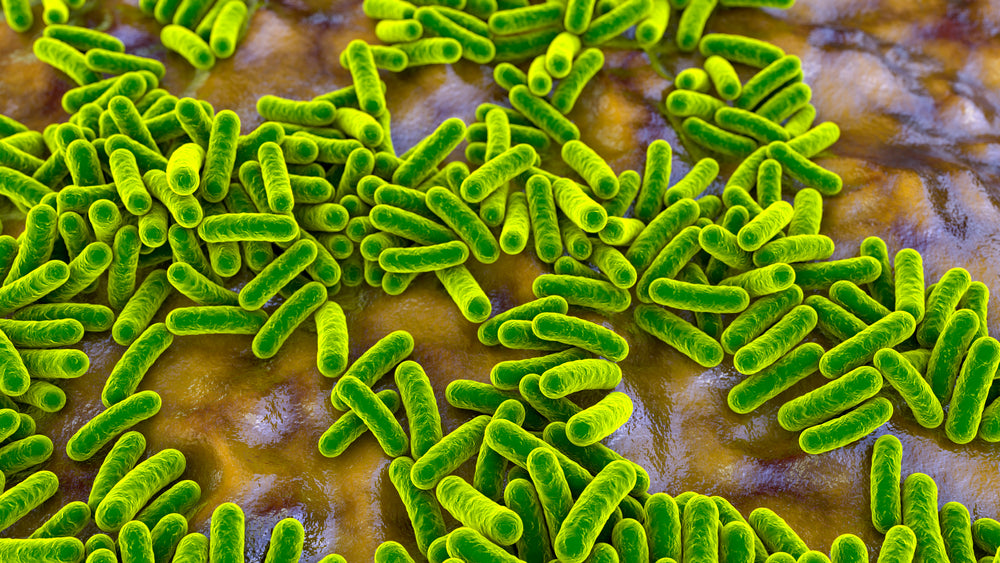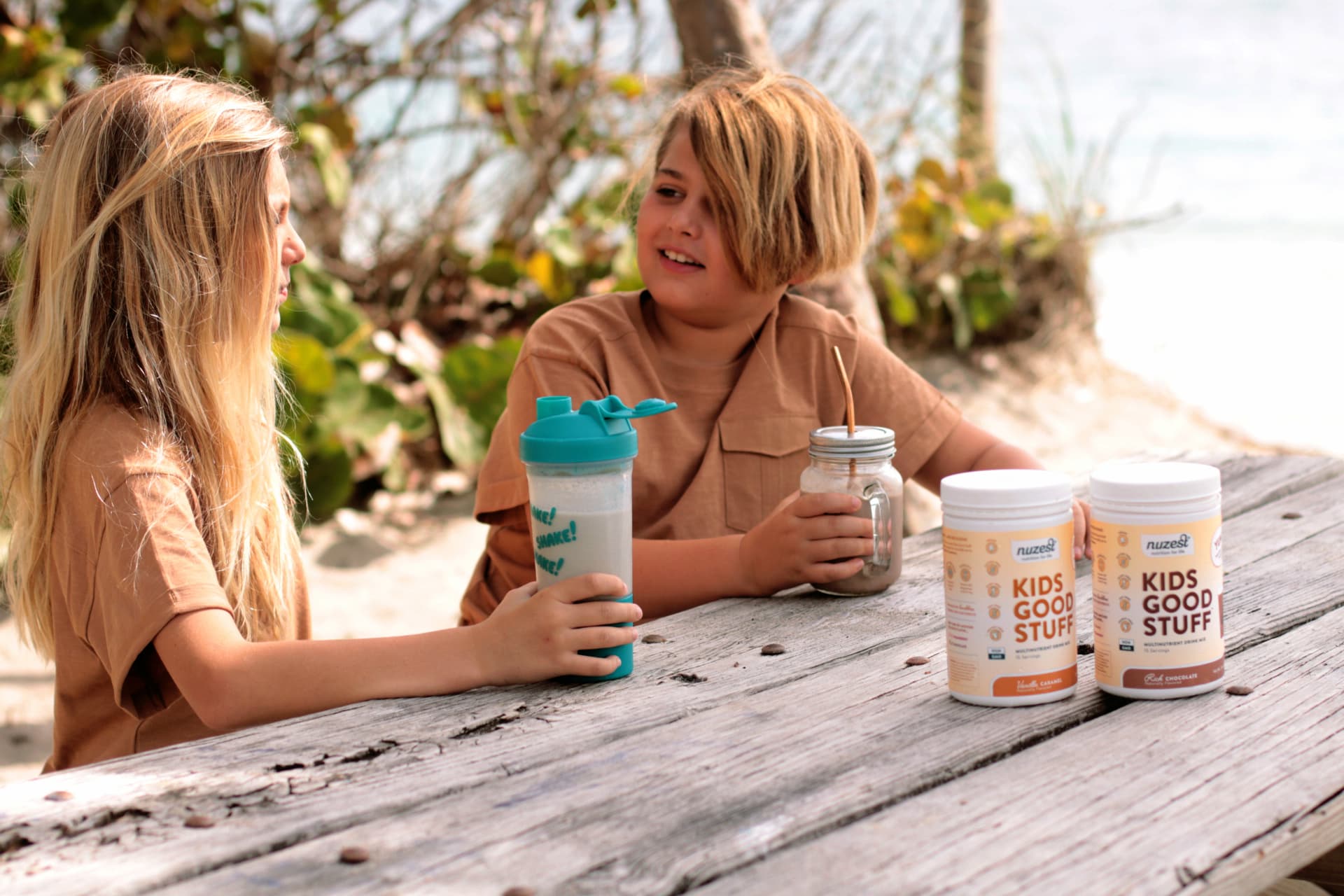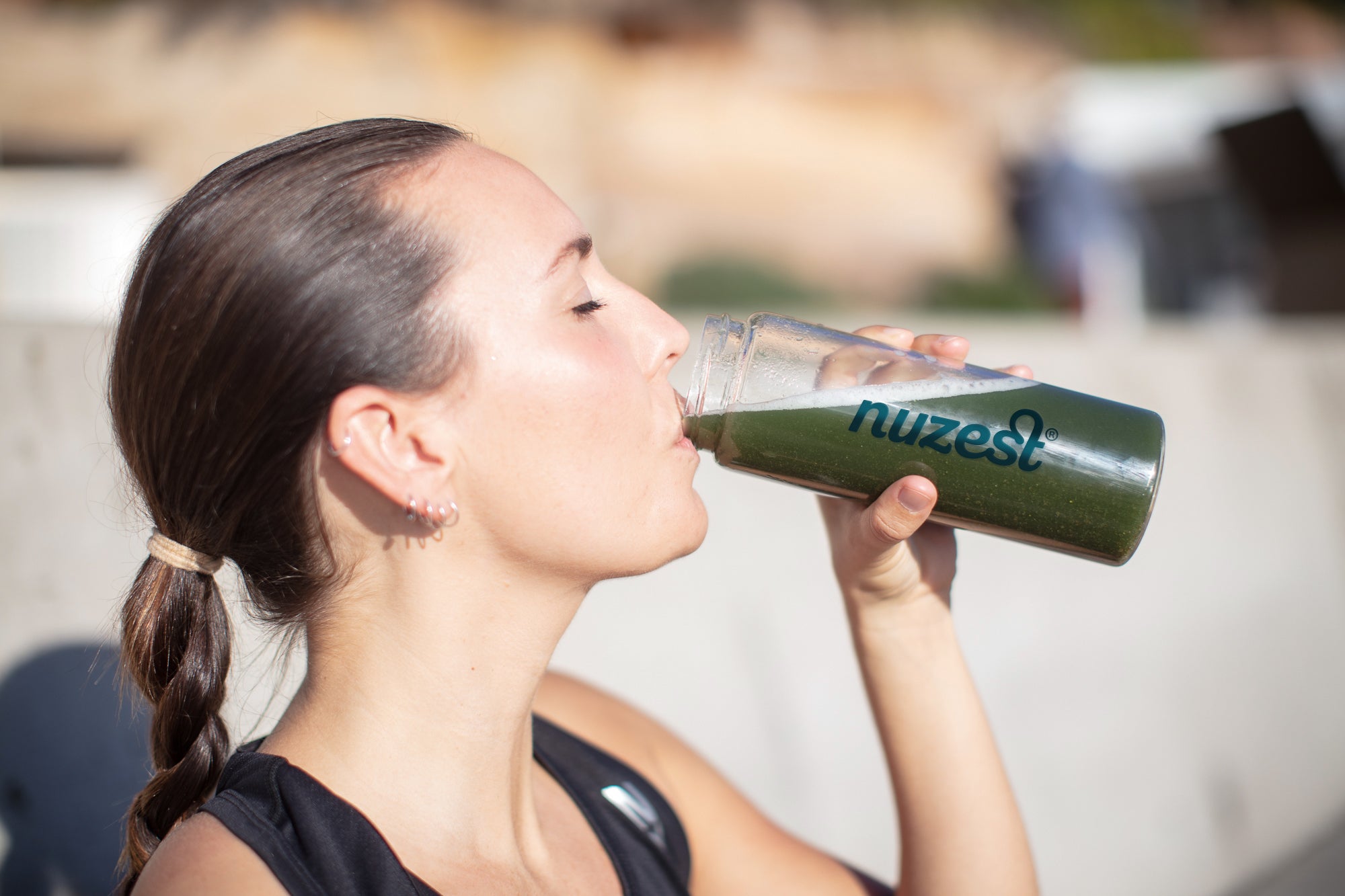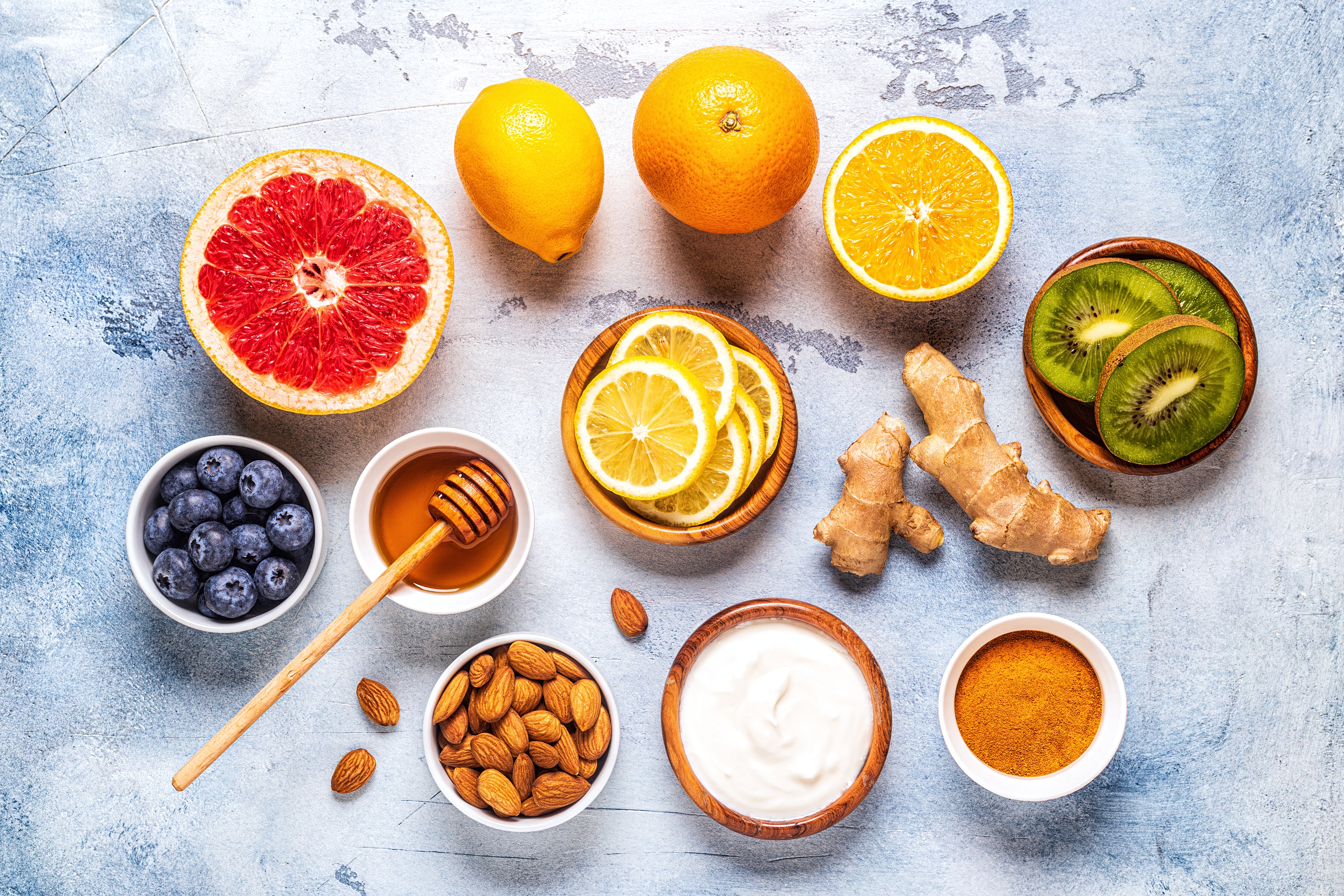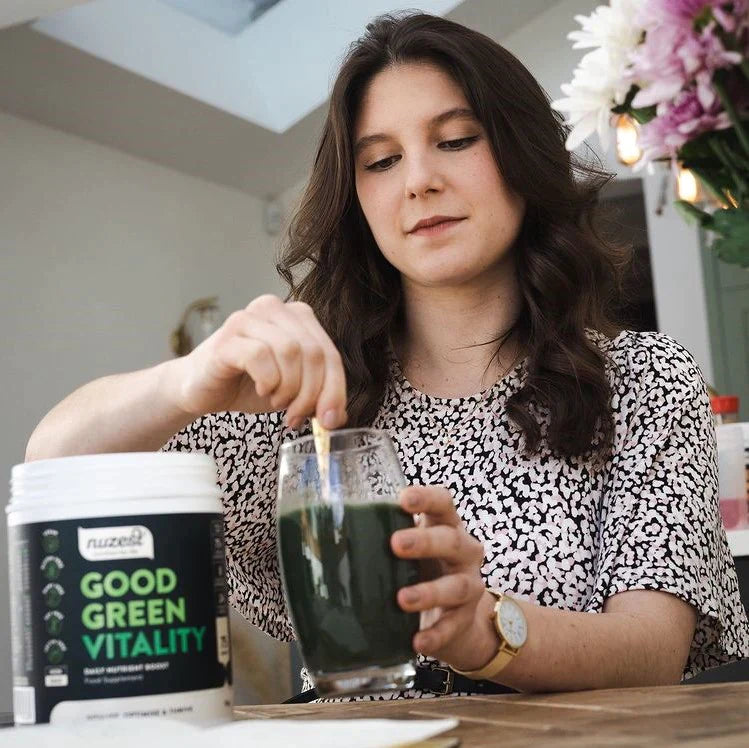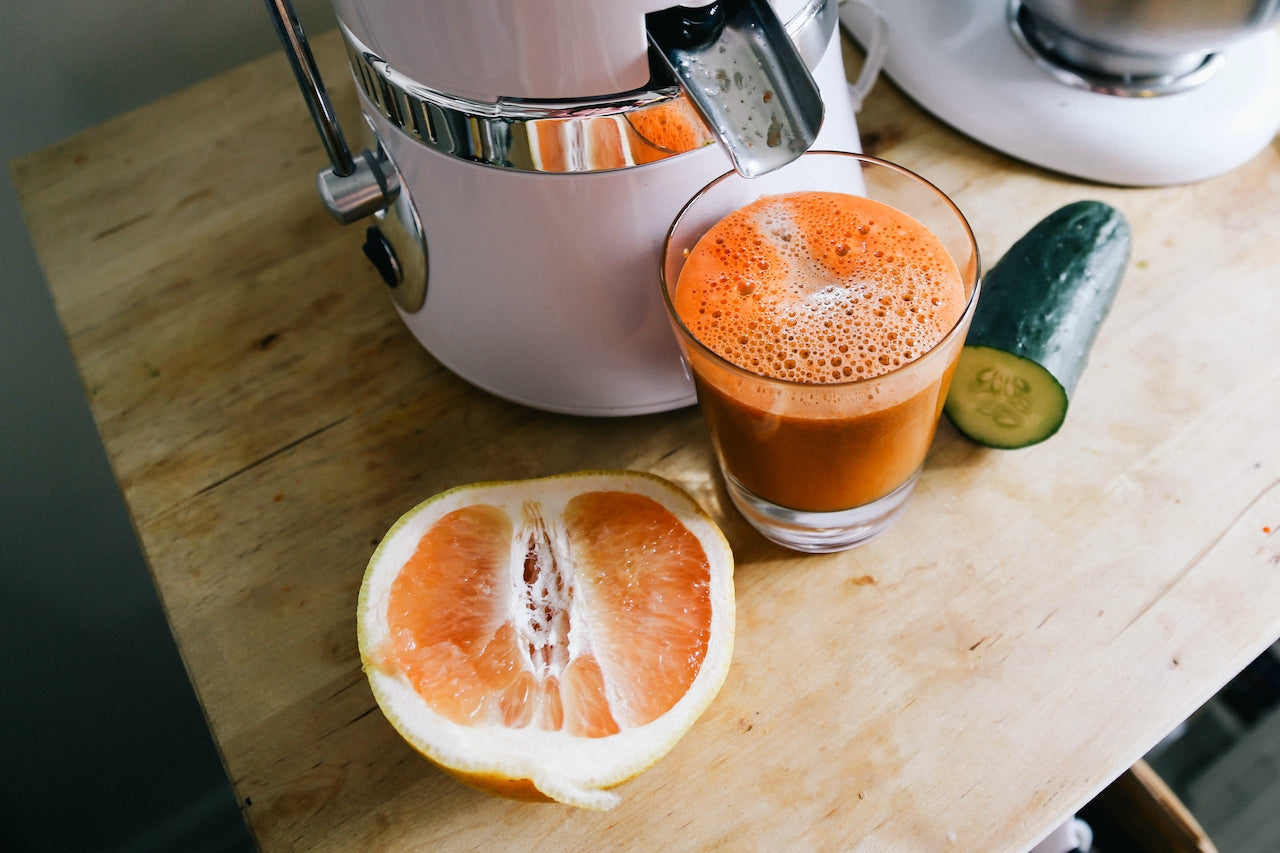“Healthy eating” is a phrase you might hear thrown around frequently when talking about your kids, but putting it into practice may be more elusive. In the most basic sense, healthy eating means making sure your kid's body and mind get the crucial nutrients needed to grow and develop. And while many kids are getting enough to eat, they may be consuming foods that aren’t necessarily healthy for them. In fact, many common foods1 don’t really count as food, and have very few nutrients. And what about kids who are vegan or picky eaters?
Multivitamins can help cover these gaps by providing key nutrients. But how do two of the most common types, kids multivitamin powder and multivitamin drops, compare with each other? Let’s explore what to look for in a good quality kids multivitamin, best multivitamin drops and powders, and ways to incorporate them into your kid’s diet.
Table of Contents
- How to Choose a Good Quality Kids Multivitamin
- How to Use Kids Vitamin Drops
- How to Use Kids Vitamin Powder
- Best Kids Multivitamin Drops vs. Multivitamin Powder
- What's the Best Children's Multivitamin?
How to Choose a Good Quality Kids Multivitamin
Many parents wonder if kids' multivitamin drops or liquids are good for you. The simple answer is that it depends. You want to look for a high quality formula without fillers, especially if considering drops, which might be formulated with preservatives, sweeteners, or flavors.2 Parents of vegan children may also want to look out for certain ingredients, such as:
- Gelatin: made by boiling animal bones, various ligaments, and tendons
- Iron: unless a blood test shows kids’ levels to be low, go for a multivitamin without iron, as it can inhibit absorption of other key nutrients (and can often be supplied through diet alone)
- Milk-Derived Ingredients: these can include whey, casein, and caseinates
When it comes to comparing kids multivitamin powder and multivitamin liquid drops, what matters most is quality. While children who are eating balanced diets are likely getting the essential vitamins and minerals needed,3 many parents are more than familiar with the challenges of feeding a picky eater,4 or a child who avoids certain foods. In these kinds of situations, kids may be missing out on certain key nutrients. That’s where a kids’ multivitamin comes in. It’s worth investing in a good quality option, as is speaking with your pediatrician or family doctor for brand recommendations.
How to Use Kids Vitamin Drops
Kids vitamin drops are most easily used by placing them directly into the mouth, either on a spoon, syringe, dropper, or measuring spoon. If, however, drops don’t taste good to your child, they may be more easily taken when mixed into juice, applesauce, or milk. Sometimes straws can be helpful too, making the experience just novel enough to run smoothly. Smoothies, smooshed fruits, or applesauce are also cunning ways of hiding unpleasant or unwelcome tasting liquid vitamin drops. Choosing a tasteless variety is another option, though these are less common than flavored versions.
While kids' vitamin drops can be baked into foods, they may lose their effectiveness when heated.5 And while drops hidden in a sweet treat like ice cream are sure to go down as a big hit, doing so isn’t a very feasible long-term solution.
How to Use Kids Vitamin Powder
Parents may have more options for using kids' vitamin powder. While powders can also be easily mixed into water or another liquid like juice, they also can be more readily used in foods. From smoothies to baked goods, Kids Good Stuff by Nuzest multivitamin powders can be a more versatile option. And unlike drops, which are typically given directly to your child to take with a meal, vitamin powders can get your child involved in the kitchen, helping them become engaged and interested in cooking, with the added bonus of spending some quality time together!
Best Children's Multivitamin Drops Vs. Multivitamin Powder
So how do you find good multivitamin drops or powder? And what are the best vitamins to take on a daily basis? It can be useful to learn exactly how much of each nutrient your child needs, as this can change, depending on age. The National Institutes of Health have compiled charts showing how much of each vitamin6 and mineral7 your child needs at every age. When looking for vegan multivitamin drops or powder, look for ones that include:
- High-Quality Protein: essential amino acids are a critical part of any diet, as the body can’t manufacture them on its own. While many multivitamins use some kind of vegan protein such as soy, you want to make sure the protein source is non-GMO and third-party tested for heavy metals and other contaminants.
- Vitamin D: supports the immune, nervous, and cardiovascular system, and promotes bone health
- Vitamin C: protects and supports immune health, body tissue, and wound healing, and a powerful antioxidant
- Vitamin E: also an antioxidant that strengthens the immune and cardiovascular systems
- Vitamin K: supports bone health, the cardiovascular system, blood clotting, and blood sugar regulation
- Vitamins B12: provides energy, creates and maintains cells and tissue, immune, and nervous system function
- Vitamin A: immune system support that promotes healthy skin and hair and is also key in heart, kidney, and lung growth during childhood
Finding the best children’s multivitamin drops is also made easier by speaking with a trusted health professional, pediatrician, or fellow parents. Regardless of who you ask, remember to check labels and look for third-party verification, which might involve reaching out to the company with an email or phone call.
What's the Best Children's Multivitamin?
Narrowing down your search for the best children’s multivitamin is likely going to depend on some combination of taste preference, versatility, and quality. And while you could spend a lot of money on a number of individual vitamin and mineral supplements, a daily multivitamin is probably the most cost effective and easier choice.
While kids obtain the best vitamins from a well-rounded diet of whole foods, supplementing with a quality multivitamin may be helpful for filling any gaps in their diet. Picky eaters, in particular, can pose a unique challenge. So the best children’s multivitamin for picky eaters should:
- Be formulated specifically for children: adult multivitamins contain adult levels of vitamins and minerals. Kids have the same needs, nutritionally speaking, as adults, but they need smaller amounts.
- Includes the key vitamins: Vitamins A, C, D3, K, E, and B.
- Probiotics and magnesium: these can be added in as additional supplements, but an ideal formula may contain both.
-
A product that’s as natural as possible: Kids Good Stuff by Nuzest is made with more than a dozen plant-based whole foods, including antioxidants such as goji berries, spinach, and carrot. And, its sustainably cultivated European golden peas, which provide 8 grams of protein per serving, are rigorously tested for heavy metals, pesticides, and common allergens.
The rate of growth and development happening during childhood makes it a really crucial time to give kids all the vitamins and minerals their bodies need, in particular C, D, E, K, E, and A, as well as magnesium, calcium, iron, and zinc. Kids multivitamin powder and multivitamin liquid drops should meet certain qualifications to make them a worthy investment to give to your little ones each day. Regardless of which option you choose, giving your kids a high quality multivitamin can provide the foundation for setting them up for a lifetime of health and energy, to help them as they pursue their dreams and live life to the fullest.
References:
- https://nutritionfacts.org/video/are-fortified-kids-breakfast-cereals-healthy-or-just-candy/
- https://medium.com/@laylamarsden27/what-are-the-most-common-fillers-and-excipients-used-in-supplements-df2703bf8088
- https://www.healthychildren.org/English/healthy-living/nutrition/Pages/Where-We-Stand-Vitamins.aspx
- https://www.ncbi.nlm.nih.gov/pmc/articles/PMC2943861/#:~:text=Picky%20eating%20is%20a%20relatively,having%20strong%20food%20preferences%20often
- https://www.consumerlab.com/answers/do-supplements-lose-effectiveness-in-the-heat/vitamin-temperature/
- https://www.ncbi.nlm.nih.gov/books/NBK56068/table/summarytables.t2/?report=objectonly
- https://www.ncbi.nlm.nih.gov/books/NBK545442/table/appJ_tab3/?report=objectonly























